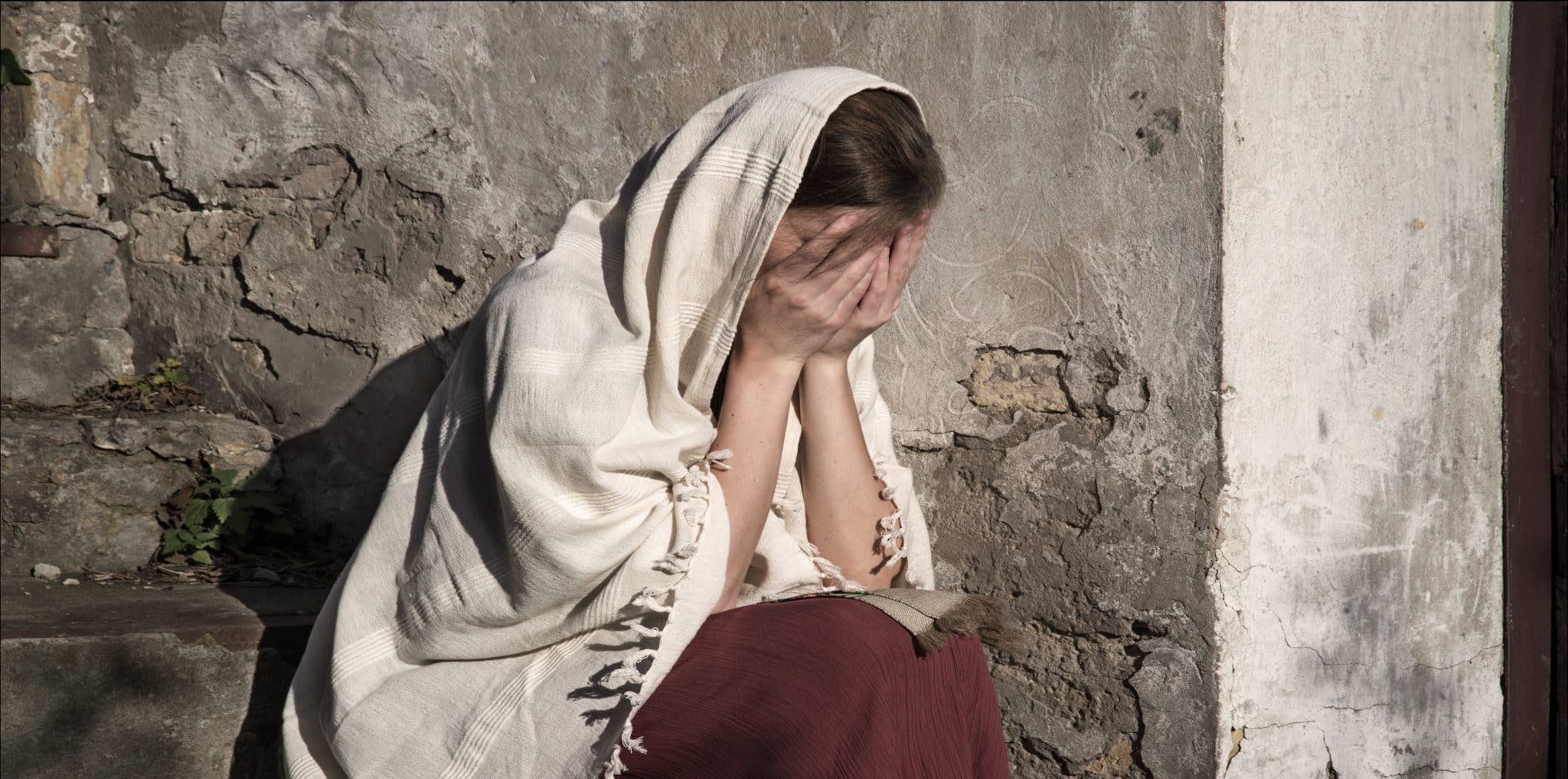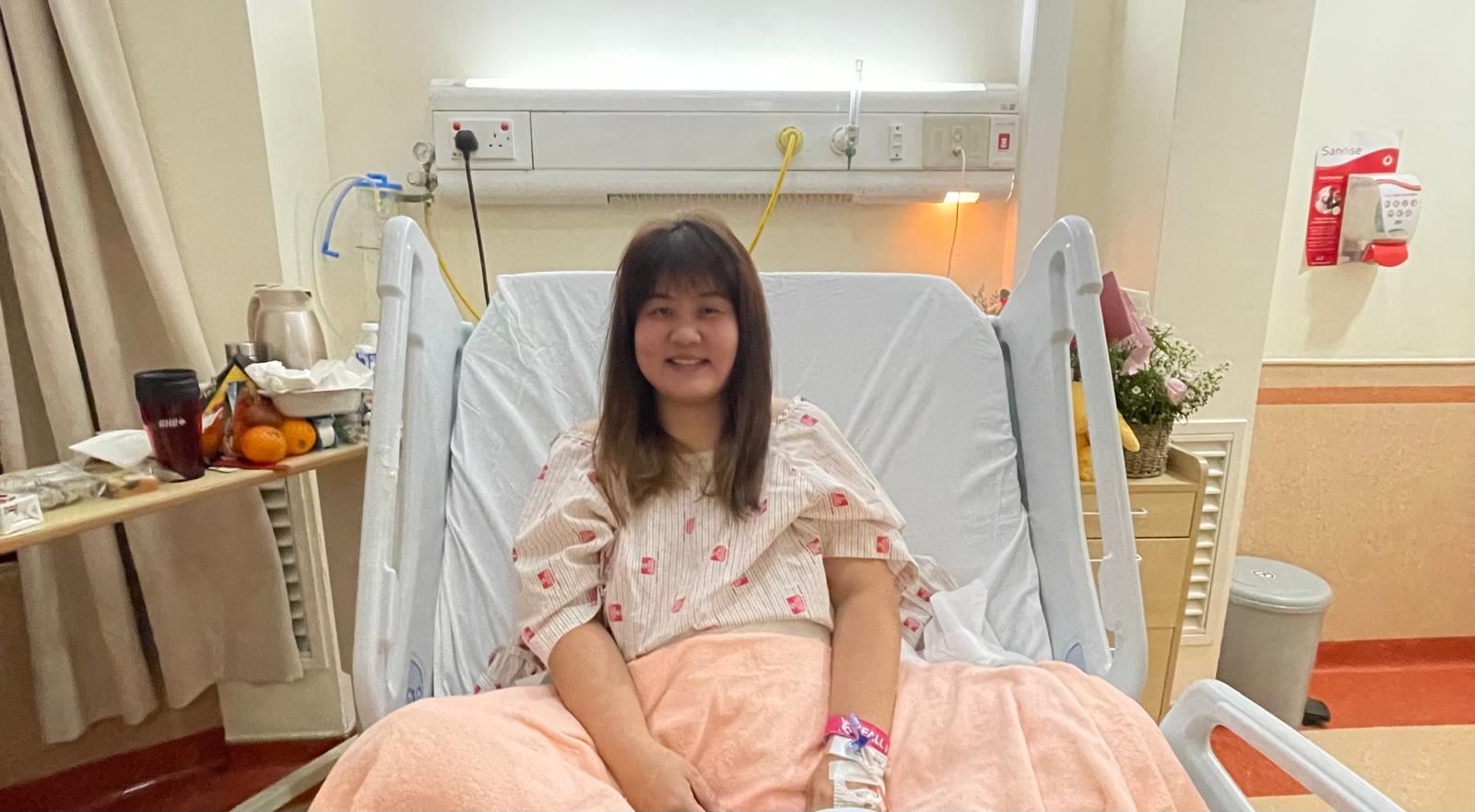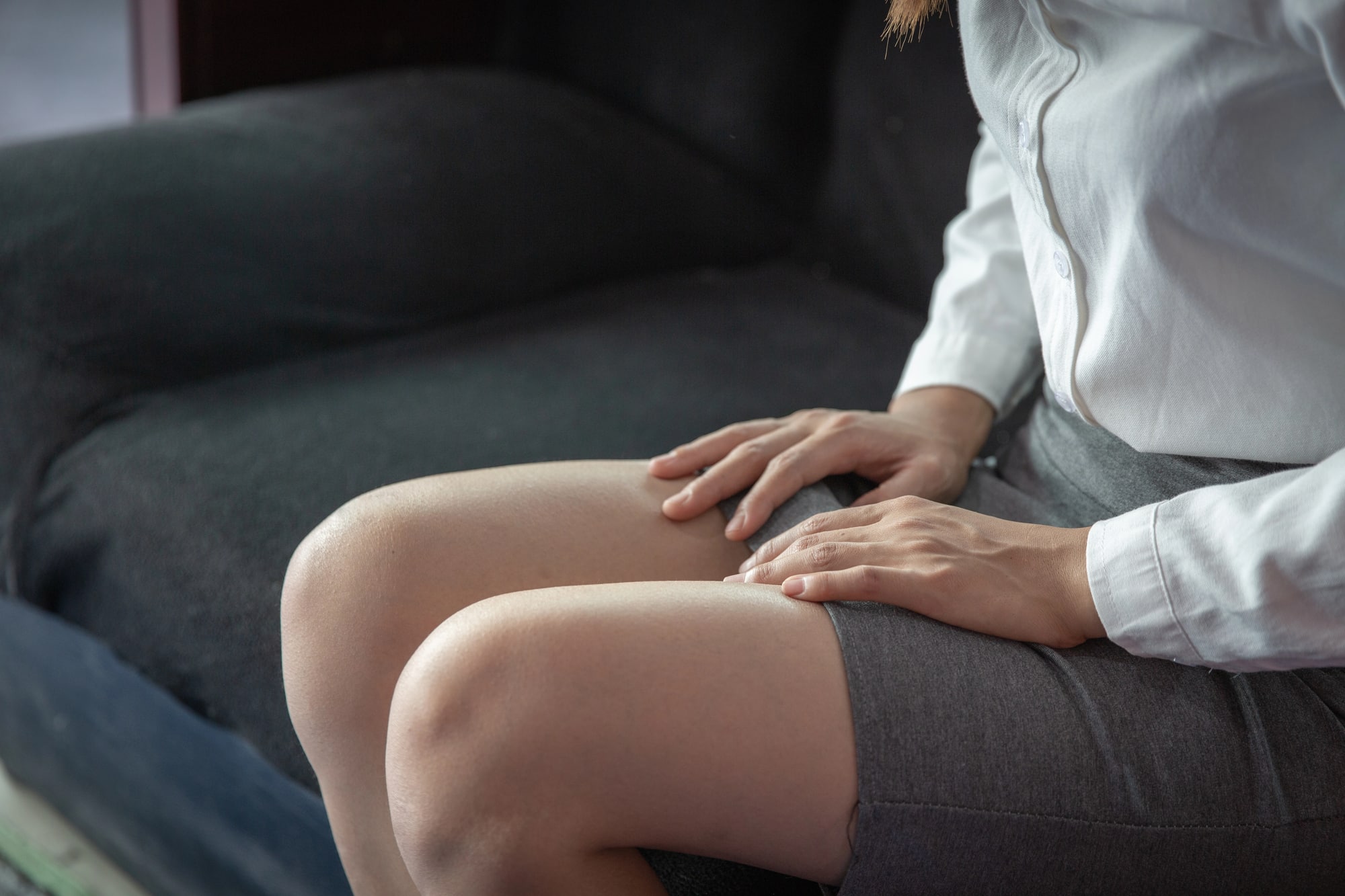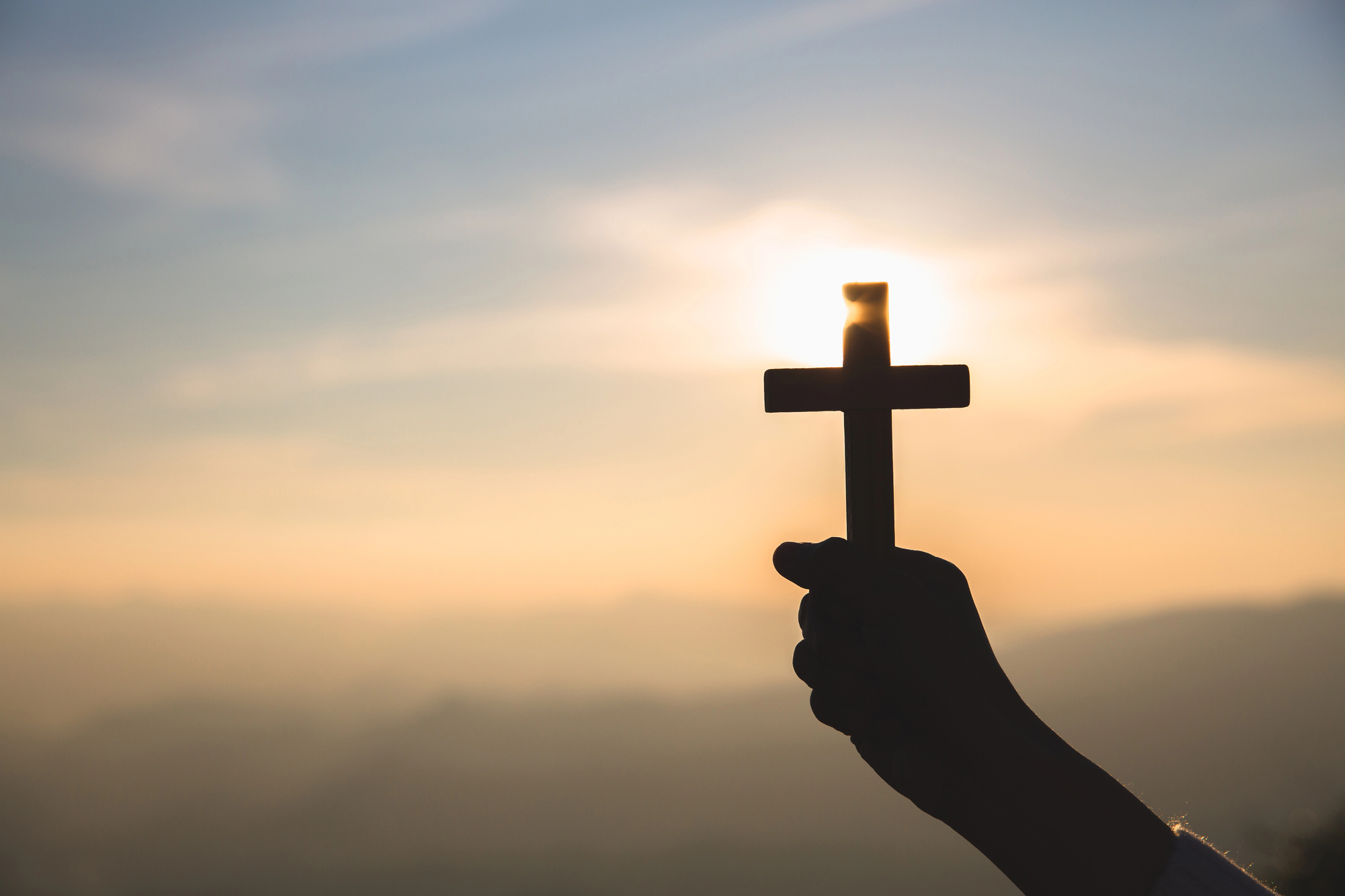Terrorists destroyed her home and killed her father, but she says: “Now that I have faith, I am not alone”
On World Refugee Day (June 20), Salt&Light remembers those who have been forcibly displaced from their homes.
by Christine Leow // June 20, 2024, 10:55 am

The loss of home, family and homeland through conflict is the plight of millions of displaced persons and refugees in the world. Nadia's (not her real name) story, though tragic, is sadly not an uncommon one. Photo from Depositphotos.com.
Nadia (not her real name) once lived a carefree life with her parents, five younger sisters and two younger brothers.
The 26-year-old, who is from the Middle East, was particularly close to her father. They had worked together at their family-owned convenience store since Nadia was 10.
“I was closer to him than to anyone else in the family. We were more like friends than father and daughter,” she told Salt&Light in an interview on Zoom ahead of World Refugee Day (June 20).
However, all that changed when she was 16.
An attack in the dead of night
That year, terrorists attacked her country, taking city after city. As threats of war echoed in her town, the townsfolk contemplated escaping. But before they could take action, the terrorists invaded her town in the dead of night.
Speaking through an interpreter, Nadia recalled: “There were a lot of loud sounds. We wondered what it was. Everyone was waking each other up.”
“Everyone told us not to go back. ‘The terrorists will capture you,’ they said.”
Her family and extended family fled their town by car. When they arrived at the next town, they found it abandoned. Its residents had deemed it unsafe as well.
“My father and uncles told us to flee to the mountains first. We had to go on foot because cars couldn’t drive up the mountain,” said Nadia.
The men stayed behind to ensure that the women and children had safe passage. But it did not take long for the terrorists to surround the men and shoot them dead.
“We could hear the sounds. Someone among us who had a pair of binoculars witnessed it and told us that many had been killed.”
Nadia and her family waited on higher ground, hoping her father would join them. When he did not appear after two hours, they went in search of him.
“Everyone told us not to go back. ‘The terrorists will capture you,’ they said. They were shouting at us not to go, but my mother and I went,” said Nadia, tears falling at the memory of that day.
What they saw later froze them in their tracks.
Left with nothing
Her father and two uncles lay dead, their bodies riddled with bullet holes, alongside scores of other men.
“I wanted to take my father’s body with me but I couldn’t lift it and no one came to help,” Nadia recalled sombrely.
“The Man said, ‘I am Jesus.’ Then He disappeared.”
To this day, she regrets that she was not able to give her father a proper burial.
“When we first fled from our house, I thought we would still be able to return. After I saw my father killed, I realised we would never be able to go home.”
Overnight, Nadia became one of over 110 million individuals worldwide who have been forcibly displaced. About 4 in 10 are children.
For the next eight days, she and her family joined tens of thousands trekking through the mountains to get to the town on the other side. They had neither food, water nor shelter from the sweltering heat of the day.
“Some of them tried to go up the mountain to carry back water but there was very little water. We had only a small cup each day,” Nadia recalled.
An invitation to hope
Her family eventually settled in a city in the north, in an uncompleted house that had been abandoned. A decade on, the house, which she described as “just concrete blocks”, is still her home.
In the new city, the local community and non-governmental organisations (NGO) stepped up to help with food and clothes.
A year later, Nadia found out that a Christian organisation was offering help as well. She approached them and they invited her to a weekly Christian gathering.
“They told me, ‘We meet to pray, read the Bible and talk about who Jesus is. Do you want to hear?’”
Nadia, who had been raised in another religion, agreed to go.
“I wanted to see who this Jesus is, if He’s good or bad.”
The man with a face like the sun
This was not the first time Nadia had heard about Jesus. Just a year before her forced exodus, her curiosity about Christianity had been piqued.
She had a friend a few years older than she who had been forced into marriage. The friend eventually left her husband, but also had to leave behind her young son.
‘There is Someone who tells everyone to come to Him if you are sick or hungry or in need. Do you know Who this is?”
“She missed her son a lot and kept thinking about him. Then she became so sick that everything she ate or drank, she would throw up,” recounted Nadia.
“She would tell me, ‘I want to die, I am going to die.’”
One day, her friend came to her and told her about a dream she had had. In the dream, she saw someone dressed in white, with a face that was so bright that she could not look at it, just like the way a person cannot look at the sun.
The person in white then approached her friend and said: “Get up, you are not sick.”
Added Nadia: “When my friend wondered who this person was, He put up His hand and she saw a cross on His palm.
“The Man said, ‘I am Jesus.’ Then He disappeared. My friend was astonished. She really wanted to talk more.”
Who is Jesus?
After that, her friend became convinced that she should get a cross and wear it, and she would be well. However, their whole religious community was hostile to Christianity.
If discovered, her friend would be in serious trouble. So Nadia advised her to hide the cross beneath her clothes if she ever managed to get her hands on one.
“After 10 days, my friend managed to get the cross and wear it. Day by day, she got better. She could eat, she could drink, she could sleep when she couldn’t before,” said Nadia.
“Doctors had told her that there was no cure for her condition. She even went to witch doctors but it was no use. But now she got better day by day.”
Though Nadia could not make sense of it, she encouraged her friend to pray to God and thank Him.
“I began thinking: Who is Jesus? I thought about it a lot.”
A flicker of hope
At a gathering by the Christian organisation in her city, Nadia confided in a local Christian volunteer that her “heart was very broken” because she did not have anyone she could rely on.
Nadia’s late father had been the rock in her and her family’s life. He was the one who had settled everything for them. With him gone, the care of the family fell to Nadia because her mother was often ill.
After listening to her, the volunteer shared the Gospel with her.
“He told me, ‘There is Someone who tells everyone to come to Him if you are sick or hungry or in need. Do you know Who this is?’
“I told him, ‘No.’ And he told me, ‘This is Jesus.’
“When he said that, I thought about my friend. Then he said that if I am alone, sick, upset or need something, when I sleep and when I rise and eat, if anything comes to mind, I can call to the Father and He will help me.”
“I always heard a voice saying, ‘You are not alone.’”
That promise lit a flicker of hope in Nadia’s heart.
She started attending Christian meetings with one of her brothers in tow, because it was inappropriate for a single woman to travel alone.
Her mother allowed her to attend these meetings because now that they were displaced from their religious community, there was no one to object to her exploration of another religion.
This connection with the local Christians eventually led to more avenues of help. Through them, Nadia got introduced to a Singapore NGO dedicated to helping genocide survivors.
The NGO provided them with financial support so three of her siblings could go to college. A female volunteer also taught her to pray.
So even when Nadia was left to care for her ill brother and mother, she never really felt she was by herself.
“I always heard a voice saying, ‘You are not alone.’”
Healing and hope
As Nadia helped everyone in her family, she grappled with her own unprocessed trauma.
Seven years after the genocide, she still could not sleep well. “I was always seeing things in my mind. I had nightmares.”
“Now that I have faith, I am not alone. He can help me when I can’t do it or don’t know what to do.”
She suffered in silence because she had no one to tell. However, in 2021, some workers from the Singapore NGO noticed that something was amiss with her.
They had taken her and her sisters out. Everyone was having fun except Nadia who was visibly uncomfortable. When approached, she finally shared about her insomnia and nightmares.
Thus began her sessions with a counsellor. They met regularly for a year.
Slowly, Nadia improved. She no longer has nightmares and can sleep through the night.
When she wanted to learn more about the Christian faith, she was introduced to a church with people who spoke her mother tongue.
There, she started studying the Bible and praying with other believers. Though she can neither read nor write because she never went to school, she managed to learn Scripture by using an audio Bible.
Nadia has started serving in church as well, telling Bible stories to the children. This is no small feat for someone who is illiterate.
“God helps me. It makes me very happy to do this.”
Never alone
As her faith grew, Nadia saw more miracles in her life.
Weeks before the Salt&Light interview, one of her sisters, a final year college student, became deathly ill. Nadia rushed her to the hospital.
“I leave it to God to deal with them. Everything is in God’s hands.”
Doctors put her sister through a battery of tests. The results were discouraging.
“I was alone with her and I was crying a lot. But I also prayed and called on Jesus,” said Nadia. “Now that I have faith, I am not alone. He can help me when I can’t do it or don’t know what to do.
The next morning, Nadia’s sister took a turn for the better.
“She was only a little sick, not very sick. When the new set of test results came back, the doctor told me that the previous results showed that my sister could have died. She had an infection in her gut that had spread to her stomach and both her kidneys.
“But now, it is all good. The doctor told me this was the first time he had ever seen test results that were so bad and two days later became all good. He asked me what I did.”
God will deal with them
In the past, Nadia had always felt God walking with her whenever she had to nurse a family member back to health. This time, she saw His hand actively at work.
Her confidence in God’s sovereignty has influenced how she feels about the terrorists who killed her father.
When the government captured three of the men involved in the attack, the families of those affected spoke to the men in court. Most of the families demanded monetary compensation. Nadia did not.
“I didn’t want their money. It would be like selling a dead man for money. I leave it to God to deal with them. Everything is in God’s hands,” said Nadia.
“I just want three things for my future. One, to follow Jesus more and more, and that no one will stop me from believing in Him. Two, to learn English so I can talk to everyone. Three, to have safety and peace for my family all the time.”
RELATED STORIES:
World Refugee Day Singapore: These Singaporeans are helping refugees worldwide – and you can, too
We are an independent, non-profit organisation that relies on the generosity of our readers, such as yourself, to continue serving the kingdom. Every dollar donated goes directly back into our editorial coverage.
Would you consider partnering with us in our kingdom work by supporting us financially, either as a one-off donation, or a recurring pledge?
Support Salt&Light


